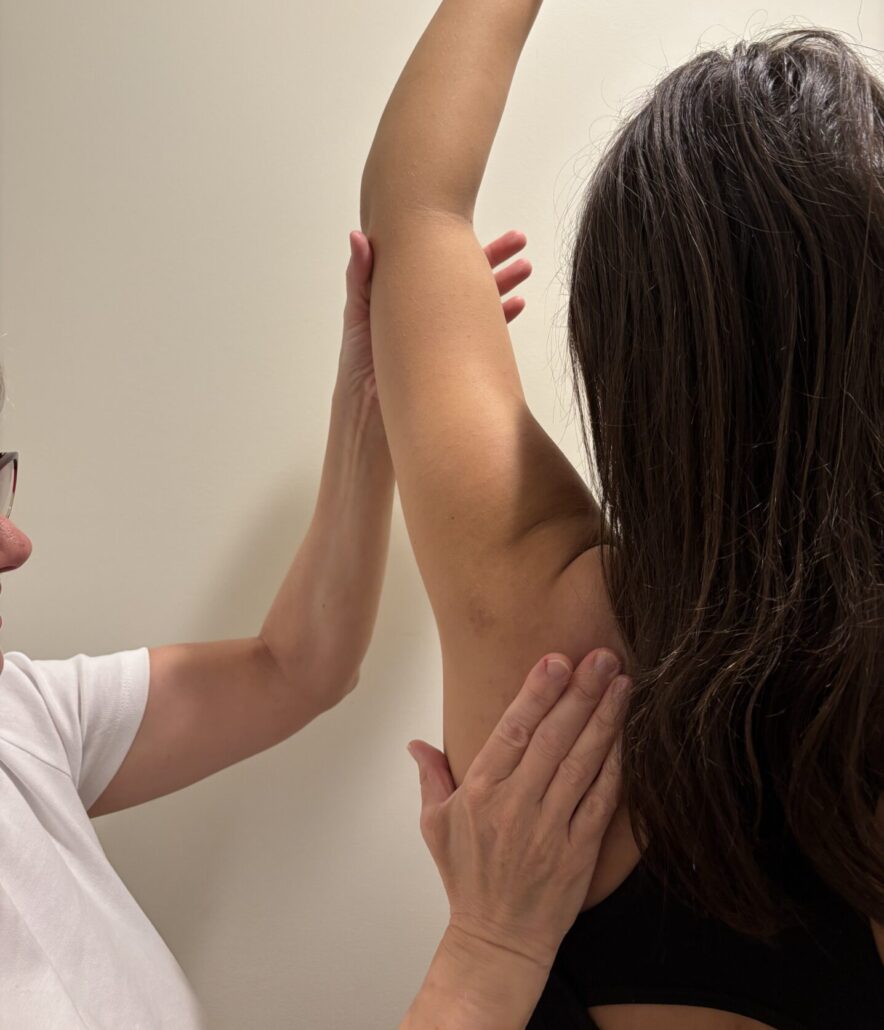Oncology Physiotherapy: Our Approach to Your Healing Journey

I’ve been working with people affected by cancer for about 10 years. My first client was going through breast cancer treatment and had been advised to exercise, but pain in her Achilles tendon was holding her back. Supporting her led me to dive deeper into understanding how chemotherapy and other cancer treatments affect tendons and tissues throughout the body. She shared her experience with others in her recovery community, and from there my oncology-focused practice began to grow.
Over the years, I’ve worked most often with people recovering from breast cancer, helping with pain and reduced mobility following surgery or radiation. This commonly affects the shoulder, arm (including cording), neck, upper back, and ribcage.
As a Fellow of the Canadian Academy of Manual and Musculoskeletal Physiotherapy (FCAMPT), I bring advanced training in hands-on techniques to restore mobility and reduce pain. Manual therapy can be very effective, but research — and my clinical experience — consistently shows that exercise is one of the most powerful tools in cancer recovery. Exercise helps manage side effects such as fatigue, mood changes and nausea, and supports return to daily activities, recreation and work. Excitingly, emerging evidence suggests exercise may also improve long-term survival.
I’m now focusing my practice fully on oncology physiotherapy, supporting people with all types of cancer. My approach is calm, empathetic, and collaborative; it is always tailored to your unique needs and goals. Together we’ll develop a treatment plan that may include:
- Exercise prescription — ranging from breathing and gentle mobility, to strength and conditioning, to progressive return-to-sport or work programs.
- Education and guidance — to support safe return to activity, optimize recovery and health, and build strategies to manage pain and other symptoms.
- Manual therapy — when needed, to improve movement, reduce pain, and complement exercise.
Every cancer journey is different, but physiotherapy has so much to offer in helping you recover, regain confidence, and get back to the things that matter most to you.
Written By: Kate Kennedy


